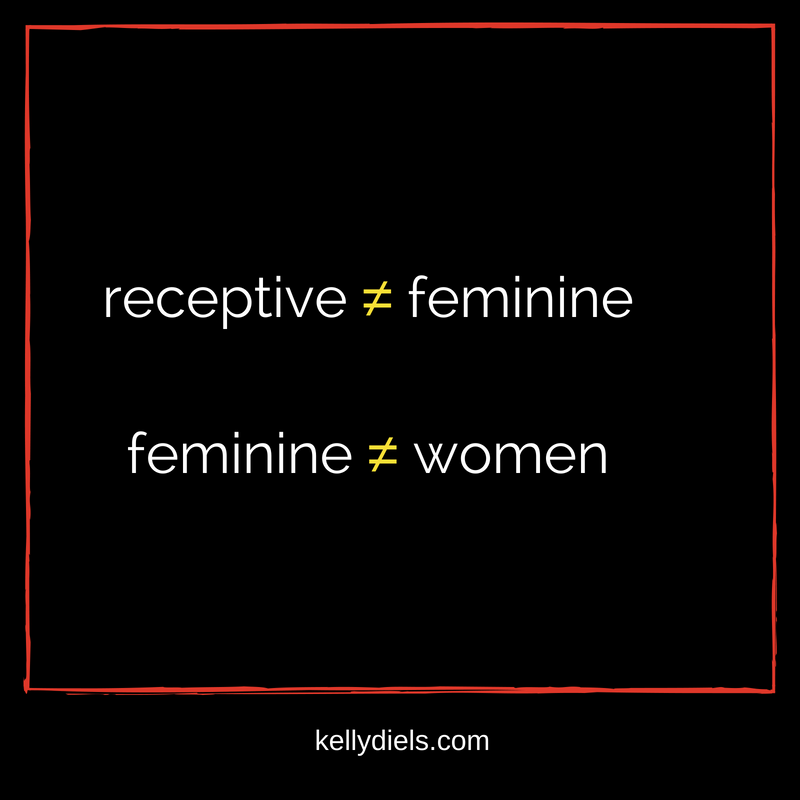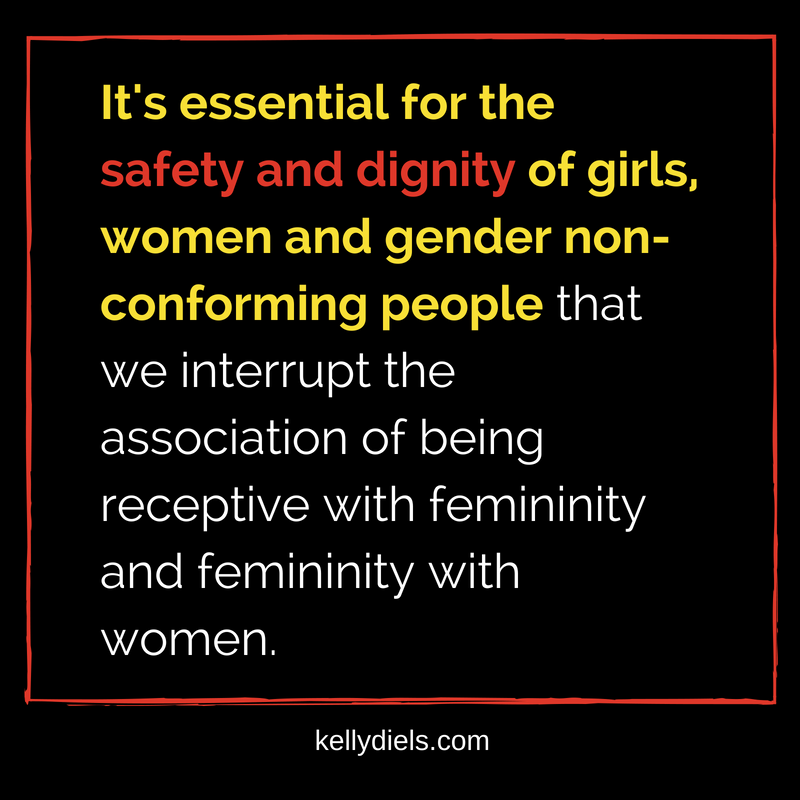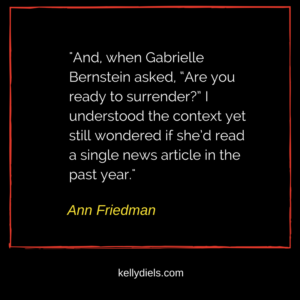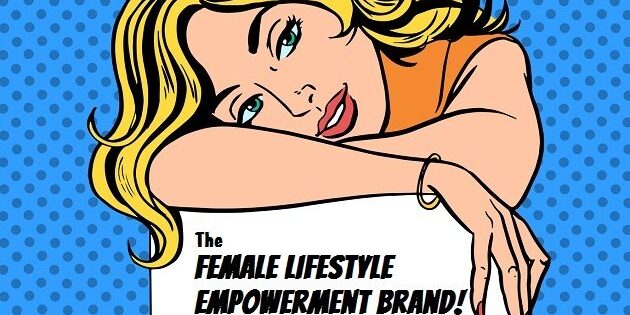
on the abuse of reciprocity and women

Reciprocity seems so lovely. You share, I share. You offer, I reciprocate. Fairness for all!
Reciprocity is fundamentally about justice. I’m talking about it like it’s a concept, but it’s an instinct or a practice. It’s not something you have to conscious choose to do or rehearse. Reciprocity is ingrained so deeply into us that it’s often automatic. Some people talk about it like it’s an engine or mental programming: once it’s activated, the fairness dominoes automatically fall into sequence.
That’s the thing about reciprocity: it’s a sequence and it’s automatic. Reflexive.
If someone offers us a gift, we feel compelled to accept it and compelled to reciprocate. If we either refuse the gift or fail to reciprocate, we feel deeply uncomfortable. The reason? We’ve violated a social contract.
Our human social programming insists, on a subterranean, psychological level, that we participate in this sequence once it’s activated.
That’s why sometimes, instinctively, we want to refuse certain offerings or gifts. Because we don’t want to be drawn into this particular dynamic with this particular person.
Still, we hesitate. Even if we don’t want the gift, we’ll accept it to avoid the visceral discomfort that comes with violating our social programming.
I’m saying social programming like it’s nefarious, but once again: reciprocity is about justice. It’s a lever we’ve developed as communal animals to keep things fair and harmonious. That’s why it feels so bad – awful, unjust – to deviate from it.
Dr. Robert Cialdini writes about reciprocity in his book Influence: The Psychology of Persuasion. He calls it one of the six persuasion principles. The people he calls “compliance professionals” strive to activate these persuasion sequences – our human, social programming towards cooperation, justice and harmony – in us in order to get us to comply with their interests and agenda. Compliance professionals are marketers, sales people, politicians, pick up artists, activists, parents, me. Anyone with an interest in changing people’s minds or getting people to say yes and comply is a compliance professional.
We are all compliance professionals.
But some of us are predators and use persuasion to feed our pleasure and profits at the expense of other people and the social good.
When it comes to reciprocity, a justice lever, some of us activate the need to reciprocate in order to disproportionately advantage ourselves over other people. We use the human instinct and social programming towards justice in order to construct an asymmetrical and unjust transaction.
And this gross abuse of our social justice programming is ubiquitous, online.
Jeff Walker, the author of Launch and a “online marketing guru”, for example, appears to take the six principles of persuasion mapped out by Cialdini and embed them in his launch sequence – and, arguably, his model is the foundation of most online marketing including the business models of many (most?) significant Female Lifestyle Empowerment Brands.
Walker argues that reciprocity is a powerful “mental trigger” and therefore if you want to be successful as online entrepreneur, you need to activate it in your marketing.
Here’s how you do it: offer lots of free content, instruction and gifts, including a bribe to sign up to your email list, and people will eventually feel obliged to reciprocate by buying your product.
If you Google big name marketing gurus + Cialdini, you will find lots and lots of people praising his insights about persuasion and bragging about how they successfully apply these social triggers in their marketing.
However.
Cialdini wrote his book in order to counter exploitative marketing. He wanted us to read the book and realize how marketers and sales people were triggering these sequences in us – and, when it was dishonest or disadvantaging us, push back. Argue. Write letters protesting certain techniques and campaigns. Boycott. Unsubscribe.
Cialdini says he is a proponent of ethical marketing.
In my understanding of his work, he wants us to be conscious of how people try to manipulate us to serve their ends without respect for our well-being or the social good.
He worked as a consultant for a chain of hotels, for example, who wanted to reduce costs and environmental impact by asking guests to reuse their towels. They experimented with different methods. The rule of reciprocity suggests that in order to get guests to do a favour like this, the hotel needed to offer a gift first. To accomplish this first-offer that triggers the reciprocity sequence, the hotel made a donation to an environmental organization and then put a card in each room saying, roughly, we’re committed to reducing our environmental footprint by using less water, electricity and detergent. As a testament to our commitment, we made a donation to an environmental org and could you do us a favour? Please reuse your towels as it helps us saves money and recoup the cost of that donation. Plus it’s good for our world!
Guests started reusing their towels at a significantly higher rate. The hotel made the first offer: the donation. The guests reciprocated with a gift of their own: they reused their towels.
No doubt the hotel saved more money than they donated. But, arguably, the guests were not disadvantaged by this transaction and a social good – environmental preservation – was served. The reciprocity sequence, which is meant to regulate social interactions and tilt them towards justice and the social good, was consistent and achieved its intent.
Reciprocity can be used in daily interactions and marketing to achieve positive ends. Persuasion is not inherently evil.
But when people are crowing about using reciprocity to trigger unconscious obligations that primarily and disproportionately serve their interests without due consideration for the other party and which is inconsistent with the social good – justice! – then that is a sign they are exploiters or predators and they need to be countered.
Which is what Cialdini preaches. Resist. Boycott.
When someone offers you a gift to initiate a sales sequence, it is essential that resist your own compunction to reciprocate and carefully assess whether the outcome serves both of you. As Cialdini explains, when a compliance profession is attempting to oblige you into a transaction that is inequitable, it is essential that you reframe the “gift”. It is not a gift, it is sales collateral. It’s no different than a brochure or a business card. If you accept it, you are not obliged to counter with a favour of your own because it is not a favour, it is a trigger.
Exploitative compliance professionals are trying to force you to receive.
They know that once you receive a gift you will be triggered – compelled, viscerally, by your deep social programming and tendency towards justice – to offer your own gift in return.
This is what sexual predators and romantic con-men do, too. They love-bomb. They offer so much time, attention, affection and gifts that their prey – women and girls – eventually feel obliged to reciprocate and give the exploiter what he has been grooming them to provide.
Obliged isn’t quite the right word. It’s deeper and more visceral than obligation.
Exploitative compliance professionals in marketing, sales and politics also try to force you to receive so you are compelled to reciprocate in a way that disproportionately serves them. Sexual predators, romantic con-men and pick-up artists try to force girls and women to receive so we are compelled to reciprocate.
Force you to receive.
This is what we need to scan for and counter.
Once you receive, you are in a sequence in which you will feel compelled to reciprocate.
When some people talk about the essential or divine nature of women, they often say one of the characteristics of femininity is being receptive. In the broadest caricature of masculinity and femininity, men do and women receive.
In other words, men trigger the reciprocity sequence in women.
Men offer a gift so that women will reciprocate.
In this broad interpretation of femininity, to be a woman is to be receptive.
To receive means being obliged – compelled by reciprocity AKA our deep social programming towards justice – to reciprocate.
And this equivalence – femininity means being receptive – means that when men offer women a gift, they are obliged to reciprocate whether they wanted that gift or not.
Consent and desire are irrelevant.
Entitlement and automatic obligation govern this sequence.
This is rape culture.

From Ann Friedman’s essay, “Glennon Doyle Is Coming to Get the White Women” https://www.thecut.com/2018/04/glennon-doyle-is-coming-to-get-the-white-women.html
And this is why we need to really interrogate the notion, so common in many pro-women and women’s empowerment spaces, that women need to cultivate the capacity to receive.
I think we need to question the base assumption: the gender binary that says we have masculine or feminine “essences”.
I think we need to dispense with the language of feminine and masculine as conceptual stand-ins for particular characteristics because that language is a product of our current patriarchal frame and history and reinforces it.
I think we need to question the association of receptivity with femininity. It’s a universal human instinct, not a gendered one.
I think we need to stop associating the practice of learning to be more deliberately receptive with “feminine leadership” or being a self-actualized woman.
It is bizarre and revealing that women who identify with liberation and women’s freedom are citing the same theories and arguments and relying on the same concepts (innate femininity, innate masculinity) as anti-feminists and Men’s Rights Activists.
Doing this excludes entire populations from our culture (everyone without those gendered “essences”) which simultaneously erases them and marks them as targets for discrimination and abuse; and is literally dangerous to the feminized women who are supposed to be naturally receptive and also, at the same time, prescriptively learn to be more receptive in order to be more feminine. Reciprocity in a just, equitable culture produces more fairness social harmony; abuses of reciprocity in an unjust, gender-biased culture puts women, girls and gender non-conforming people at risk of personal exploitation, predation and rape. And when we normalize the base conditions for this abuse — prescribing and underlining a spiritualized, patriarchal gender binary; prescribing the performance of MORE receptivity and surrender for bodies marked feminine — then we are complicit in the oppressive outcome.
If we construct one gender as innate receivers who are then obliged to reciprocate once the reciprocity sequence has been initiated, then men are entitled to extract offerings from women. It becomes — and is! — a social norm.
Men initiate. Women receive and reciprocate whether we want to or not.
Smile! Looking goooooood, girl. Do you have a boyfriend? Why are you being so rude, I’m trying to give you a compliment. But I bought you dinner.
[tweet_dis]I believe it’s essential for the safety and dignity of girls and women that we interrupt the association of being receptive with femininity and femininity with women.[/tweet_dis]
When we counsel women and girls to be receptive, when we tell them that’s who they uniquely are, their role in our culture and their source of feminine power, then we train them to comply with reciprocity sequences designed to harm them.
Let’s return for a moment to the principle of reciprocity. Do Cialdini and Walker et al say that reciprocity only works on women, because women are innately receptive?
No.
They say it works on everyone and given the success of online marketers, this seems to be true.
All humans are receptive.
Receptive is not the same thing as feminine and feminine is not the same thing as women.
What happens though, is that girls and women in our culture are marked as prey and so many of us – too many of us – have experienced gender-based violence and violation.
Being the target of exploitative transactions triggered by an abuse of reciprocity is unpleasant and dehumanizing for anyone but is especially familiar to and awful for trauma survivors.
Maybe that’s why I viscerally recoil when I see online marketers exhorting people to evoke reciprocity and shower people with free gifts in order to extract sales. If there is no fairness and conscious choice and social good achieved by the transaction then it feels like grooming to me.
And that’s why, like Cialdini, I want us to understand how those levers and sequences are being deliberately triggered in us and have the skills to recognized and resist them when they are exploitative.
I also want entrepreneurs, especially those who sell to women and marginalized peoples, to be very conscious and careful about how they use reciprocity in their marketing and sales – especially when they are high-risk transactions. As Dr. Michelle Mazur, who taught persuasion at the university level, explained to me:
The six principles [of persuasion] do have a benefit to us. They help us make decisions quickly in low risk situations. Imagine if you had to go to the grocery store and thoughtfully choose which brand of coffee buy. It would suck the life out of you and you’d be mentally exhausted after each trip to the grocery store. The real issue is that people are using these principles in HIGH risk situations (big investments). [emphasis mine; from an email correspondence]
IF you’re initiating a sequence that is low-risk, serves everybody in the transaction and the social good of harmony and fairness, then you’re in integrity with the principle of reciprocity which is fundamentally about justice. This is how reciprocity is supposed to function and there is no shame in that game.
IF you’re triggering a reciprocity sequence to automatically oblige someone into buying a high-risk, high-priced product that may or may not and in most cases will not work for them but will DEFINITELY work for you or you’re telling a woman to smile so she’ll start to obey and serve you, well then, you’re a predator. Even if you didn’t explicitly know it and even if you don’t consciously identify as one.
Even if you say you’re doing it in the name of women’s empowerment.
When we use reciprocity in high-risk transactions to disadvantage people, especially marginalized peoples, we are undermining rather creating the conditions of collective empowerment.
When we use reciprocity to disadvantage the people acting in good faith with us and whom we claim to serve, we are contributing to the degradation of justice in our culture.
And I am not buying that from anyone.
Because, one more time: I believe it’s essential for the safety and dignity of girls, women and gender non-conforming people that we interrupt the association of being receptive with femininity, and femininity with bodies marked “women”.
And I believe that it’s in our best interests and essential we raise our consciousness about the reciprocity sequence so we can resist people and sequences that deliberately abuse reciprocity. The abuse of reciprocity in high-risk situations is a clear and vivid indicator that they are operating only in their interest and will extract and exploit things — sex, money, our lives — from us in order to accomplish it.
This is an updated repost of a newsletter I originally sent to my subscribers in May 2016.
Last updated: May 19,2018




